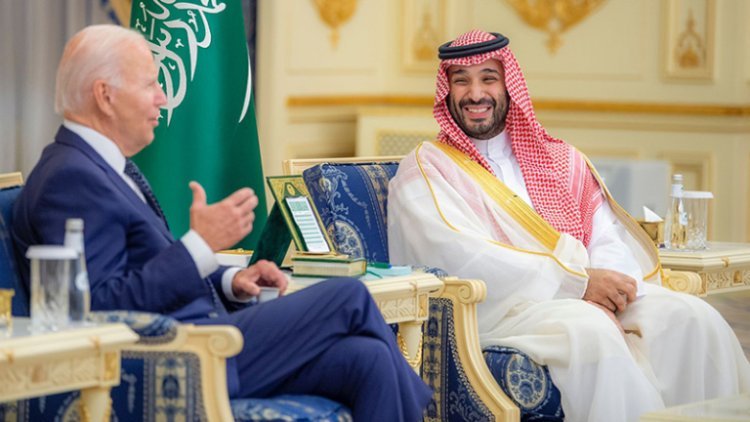Saudi Arabia’s foreign policy emphasizes fostering strong alliances, particularly with Gulf Cooperation Council (GCC) members, the Arab League, the Organization of Islamic Cooperation (OIC), and neighboring countries, to support economic and political stability in the region. Key objectives include securing energy markets, promoting Islamic solidarity, and strengthening ties with influential global powers. Through its Vision 2030 initiative, Saudi Arabia is expanding its international outreach, diversifying its economy, and establishing diplomatic connections beyond traditional allies.
Core Pillars of Saudi Arabia's Foreign Policy
1. Saudi Arabia prioritizes close cooperation with GCC members—UAE, Kuwait, Bahrain, Oman, and Qatar—on oil production, pricing, and regional stability.
2. As a leading oil producer, Saudi Arabia seeks to regulate global oil markets, maintaining economic stability.
3. With its role as the birthplace of Islam, Saudi Arabia views itself as a global leader in advocating for Islamic values and interests.
4. National security and counter-terrorism efforts remain fundamental to Saudi policy.
5. Saudi Arabia's key relationships with the US, China, and the EU are critical to its broader international influence.
Major Global Partnerships
•Saudi Arabia’s long-standing alliance with the US has centered on energy trade, security cooperation, and counter-terrorism. Recently, both countries agreed to cooperate on nuclear energy, with a shared commitment to non-proliferation.
•Saudi Arabia has deepened ties with China, collaborating on nuclear energy, infrastructure, and space exploration.
•Through trade, energy, and education partnerships, Saudi Arabia has established a strong relationship with the EU.
Regional Challenges and Relations with Iran
The rivalry with Iran heavily influences Saudi Arabia’s approach to conflicts in Yemen and its stance on Iran-backed groups in Lebanon, Syria, and Iraq. The Saudi-led coalition supports the Yemeni government against the Houthi rebels, aiming to restore stability and counter Iran’s regional influence.
Vision 2030 and Economic Diversification
Saudi Arabia’s Vision 2030 aims to shift its economy from an oil-based system to a diversified model, focusing on renewable energy, tourism, and private sector growth. This strategy includes attracting foreign investment tourism and increasing Saudi Arabia’s influence on the global stage.
Evolving Policies under Crown Prince Mohammed bin Salman
Under Crown Prince Mohammed bin Salman, Saudi Arabia has pursued a foreign policy that prioritizes economic diversification, regional alliances, and a greater role in global governance. Balancing modernization with traditional values, the country is navigating a complex regional environment while seeking to position itself as a major regional and global power.
Iran’s Political Landscape and Nationalist Sentiments
Iranian universities, which once represented leftist intellectualism, now harbor nationalists and monarchists who see Israel’s government as an ally against their own theocratic regime. This sentiment, bolstered by a historic discontent towards Arab influence, is echoed in growing nationalist rhetoric among the younger Iranian generation.
In recent years, Iranian nationalist sentiments have intensified, with some advocating closer relations with Israel, highlighting a shared adversary in Arab countries. Anti-regime protests have featured slogans rejecting both the government and what some protesters perceive as “Arab culture,” reflecting frustration with the Islamic Republic’s ideology and governance.
Israeli-Palestinian Conflict and Perspectives on Zionism
Israel’s position in the region, alongside the ongoing Palestinian conflict, remains a central issue. Discussions of Zionism often revolve around historical and religious claims to the land. While many supporters argue Israel’s establishment was justified by a history of persecution, others point to the necessity of recognizing Palestinian rights to foster peace. The two-state solution remains a widely supported approach, potentially aligned with the Saudi Peace Proposal of 2002, to secure peace and mutual recognition between Israel and Palestine.








